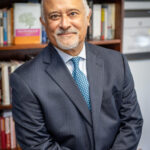
Asylum-Seeking Children and Families and the Effects of Immigration, Detention, and Separation
Asylum-Seeking Children and Families and the Effects of Immigration, Detention, and Separation
Information
Date & Time
-
-
Learning Objectives
Participants will be able to:
-
Describe three or more unique challenges facing families and children in Central America that propel themto emigrate to the U.S. in search of asylum.
-
Identify and describe the four stages of Central American immigration.
-
Explain two or more ways immigration detention affects children’s development and mental health, using human attachment theory and research.
Educational Goal
The educational goal of this workshop is to increase knowledge about asylum-seeking children and families and learn interventions that are intended to reduce the harm and long-term effects of detention and separation.
Description
This workshop discusses the reasons that Central American families and children seek asylum in the United States. Beginning with the conditions that trigger emigration, the presentation describes the stages of migration and with examples from the presenter’s research and clinical experiences. For more specificity, the presenter draws on human attachment theory to explain the untoward effects on children’s reactions to detention and separation from parents. The workshop concludes with consideration of some possible interventions intended to reduce the harm and long-term effects of detention and separation.
Target Audience
- Addiction Professional
- Counselor
- Marriage & Family Therapist
- Psychologist
- Social Worker
Presenters

Luis H. Zayas is Provost and Senior Vice President for Academic Affairs at the University of Texas Rio Grande Valley. He holds a master’s degree in social work from Columbia University and MA, MPhil, and PhD degrees in developmental psychology from Columbia as well. Zayas was dean of the school of social work at the University of Texas at Austin and, prior to that, he taught at Columbia University, Fordham University, Albert Einstein College of Medicine, and Washington University in St. Louis. Over a long career, Zayas has been a clinician, teacher, researcher, and advocate, serving low-income families in urban communities and studying their lives and needs. He has published over 130 papers in professional journals and three books.
Financially Sponsored By
- Hispanic/Latino Behavioral Health Center of Excellence